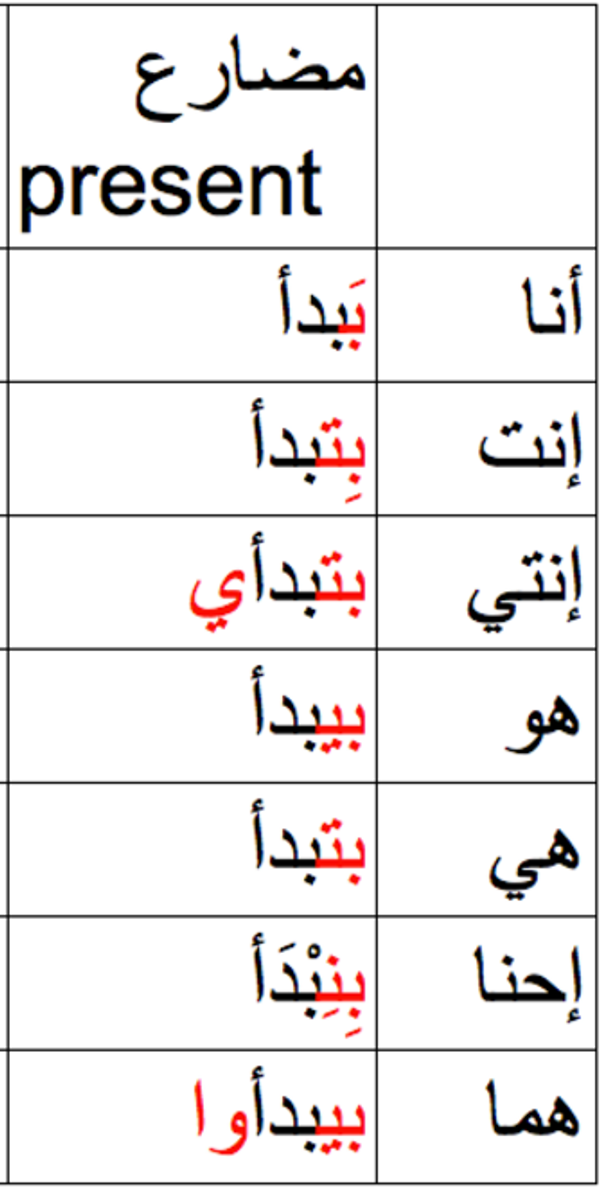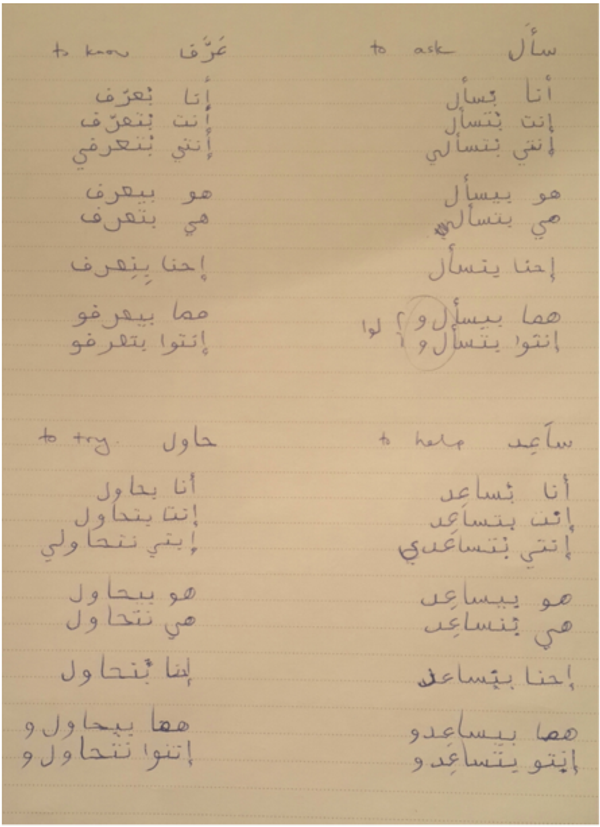One simple strategy for learning the hardest grammar in the world
Written by guest contributor Olly Richards from I Will Teach You a Language
If you’re learning a difficult language, you might be wondering how best to set about learning its grammar. You might have flicked through various textbooks, maybe even completed a few grammar exercises, and felt so overwhelmed that you wanted to throw the book through the window!
Well, fear not! This post will show you exactly how I approach learning the grammar of a notoriously hard language: Arabic.
First, though, let’s be clear: You will never find any shortcuts for learning grammar. Grammar is hard, yes. But impossible? Absolutely not.
Your success in learning the grammar of your target language will ultimately come down to one thing: Your ability to stay motivated and keep at it for long enough to get used to it! Don’t take this statement lightly! Many of us are terrible at taking on large projects and having the emotional intelligence to stick to them, even when it gets tough. It’s not the difficulty of the grammar, but this simple fact that will determine whether you eventually master the grammar of the language or not.
With that in mind, let’s get into it!
Why learn grammar?
Although I believe that you shouldn’t focus on grammar when you’re learning a new language, there comes a time when you can’t avoid it any longer. I’ve reached that point with my Arabic grammar.
I’ve been learning Egyptian Arabic since arriving in Cairo, and although I’ve been making steady progress, I’m now very conscious that my lack of grammar knowledge is holding me back.
How do I know this? Well, my approach to learning a new language involves learning large amounts of vocabulary in complete phrases. This is great, but now that I’m starting to reach a higher level, I now want more flexibility in expressing myself—to say things with more nuance and more accuracy. And for this I need more grammar.
Grammar Sprints
My favourite language learning strategy of all is something I call “sprints”. This is where I set aside around 3 weeks and focus all my attention on one thing. I do it well, and I go into depth (which you can read all about here). So I decided to take that approach to tackling Arabic grammar.
My mindset coming into this was, “OK, I’ve been putting off studying Arabic grammar until this point, because I knew that it’s difficult and that it would hold me back from starting to speak the language. However, now that I’ve committed myself to learning the language, I’m going to do it properly and I’m going to do it thoroughly—no half measures!”
So, I was psyched up. But I couldn’t do it on my own. Egyptian Arabic textbooks are few and far between and often difficult to use. Given how complex this task was going to be, and how I wanted to do it seriously, I decided to take lessons with a teacher. So, armed with a sprint and with a great online Arabic tutor ready to teach me, I headed off into the grammar jungle…
Entering the Grammar Jungle
First things first: The enemy of progress is trying to take on too much at once. I have a philosophy in everything I do, whether it’s language learning, writing, or habit formation, that is this: Choose one thing that’s manageable, and do it to completion. Enjoy the feeling of success for a moment, then move swiftly on to the next step.
Taking this philosophy and applying it to learning Arabic grammar, I decided to focus on one tense (or verb pattern) only, and aim to master it.
Here’s what I decided: To learn and master the present simple, because it’s a logical starting point, and not to attempt to master any other grammatical concepts until I could confidently use the present simple, in any conjugation, with any verb.
I discussed this with my teacher, and asked her to work with me to achieve this goal. My teacher was great, and knew exactly what to do – this is the advantage of having a really great teacher.
Our Process During Lessons
She taught me the rules of the present simple in Egyptian Arabic. Logistically, this was done mostly speaking in English, and writing out examples on a Google Doc as we went. Google Docs are great because both sides can see and update them live – great for online lessons.
I went away, looked back through my notes and wrote a list of all the verbs I knew in Arabic. Next, I systematically conjugated every verb I knew in the present tense, writing it all in the Arabic script, filling up dozens of pages of my notebook as I went!

I sent photos of what I’d written to my teacher so she could check it for accuracy. In the subsequent class, after troubleshooting some errors (there were quite a few!), we spent the time having a conversation in Arabic entirely in the present tense! It’s pretty simple—she would ask me questions and I would answer them, using the present simple all the way (e.g. “What time do you start work?” “I start work at 9 am.”). We then continued this pattern for about 2 to 3 weeks (the length of a sprint). My homework was to write out verb tables, and our 2 lessons a week were spent practising them in conversation.

Your Thoughts
So, as you’re reading this you might react in a number of ways. You might think it’s overly simple, or you might think it sounds like too much work.
If you’re tempted to try something like this, here are some points to bear in mind: Although you might be tempted to look at other tenses and “learn more”… don’t! When dealing with complex areas of language, learn one thing properly, then move on. There are lots of fancy, modern ways to learn grammar that try to make it feel “easy” to learn grammar, but don’t lose sight of the fact that a direct approach is better. In this case, I’ve simply done three things, which are very logical, and will work well for most people:
-Learn to form the present simple
-Systematically write out every verb I know
-Practise using what I learned in conversation
Once you’ve gone through this fairly mechanical process of learning one bit of grammar, the next step is to really listen to those speaking around you. You must pay close attention to everything you hear and try to notice when certain verbs and grammatical tenses are used. This is how it starts to become familiar, and you can start to really “know it”.
So, this is the exact process I’m using right now to learn Arabic grammar. It’s a systematic approach to a very difficult language. If you’re learning a more familiar language with grammatical structures similar to your native language, you might not need to go to such lengths, and there might even be a better approach. But that’s a story for another day!
Olly Richards is from the UK, and speaks 8 languages. He is the founder of the popular website I Will Teach You A Language, a best-selling author, and runs language workshops around the world.
1 de julio de 2016





